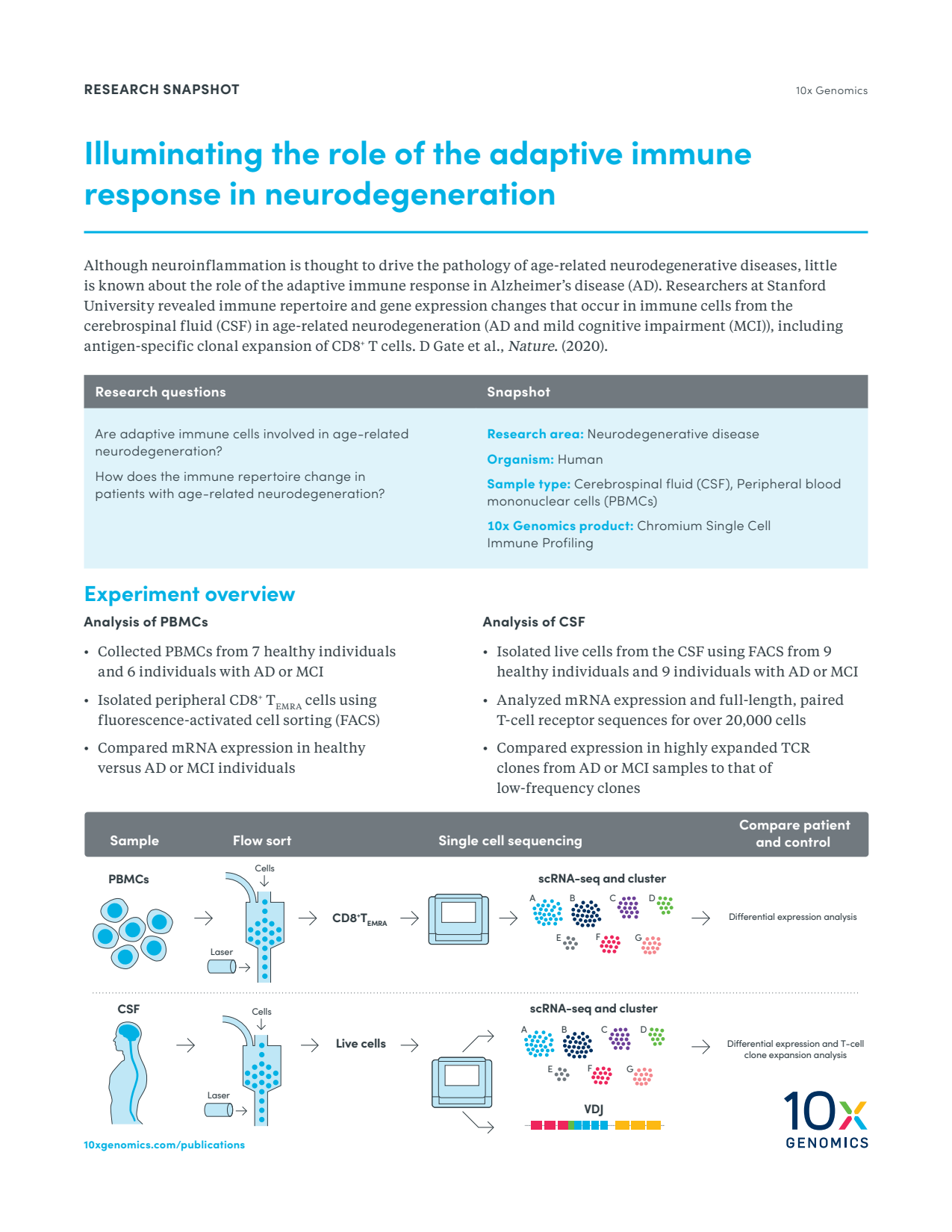
Illuminating the role of the adaptive immune response in neurodegeneration
Although neuroinflammation is thought to drive the pathology of age-related neurodegenerative diseases, little is known about the role of the adaptive immune response in Alzheimer’s disease (AD). Researchers at Stanford University revealed immune repertoire and gene expression changes that occur in immune cells from the cerebrospinal fluid (CSF) in age-related neurodegeneration (AD and mild cognitive impairment (MCI)), including antigen-specific clonal expansion of CD8+ T cells.
Although neuroinflammation is thought to drive the pathology of age-related neurodegenerative diseases, little is known about the role of the adaptive immune response in Alzheimer’s disease (AD). Researchers at Stanford University revealed immune repertoire and gene expression changes that occur in immune cells from the cerebrospinal fluid (CSF) in age-related neurodegeneration (AD and mild cognitive impairment (MCI)), including antigen-specific clonal expansion of CD8+ T cells.